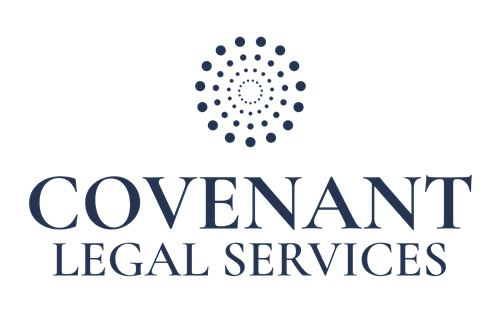A conversation with Wilfrid J. Wilkinson
When Wilfrid J. Wilkinson joined the Rotary Club of Trenton, Ont., Canada, in 1962, his club focused on quiet local service. But he soon attended his first RI Convention, where he was inspired by Rotary's international scope. Four decades and numerous RI and Foundation positions later, he's poised to take on his biggest job yet: RI president. He unveils the theme he's chosen, Rotary Shares, in this chat with Editor in Chief Vince Aversano.
By Vince Aversano, editor in chief
The Rotarian
March 2007
[Q] Your presidency comes during your 45th year as a Rotarian. What are the advantages of such a long commitment to the same service organization?
First and foremost, Joan and I have had contact with friends at the local level and also internationally. There is also the feeling of satisfaction in knowing you've made a difference, both on your own and together with your club and the whole Rotary world. You can accomplish fantastic things in a service club like Rotary, like our polio eradication campaign.
[Q] You are the first Canadian president in over 50 years. Do you think Canadian Rotarians have a separate identity from their counterparts in the United States?
Yes, but it complements the identity of U.S. Rotarians, as they relish their role of making our organization international. Rotarians in Canada and the U.S. seem to want to be in the same district, which causes some administrative problems, but they enjoy it. Of the 23 districts with clubs in Canada, 16 are international. There are at least three clubs that meet one week in the U.S. and the next week in Canada. They're right on the border, and they move their meetings back and forth.
[Q] What has prepared you for being RI president?
What has prepared me is my 44 years of Rotary service. You learn on the job. I had the tremendous advantage of attending, with my wife, my first international convention within my first two years, and she and I immediately saw the opportunities this organization offered. You can't attend an international convention without being struck by its internationality. When you see people in their native dress watch the flag ceremony and listen to inspirational speakers, you realize why this organization is so effective and so important.
[Q] You've talked about becoming a public figure for RI during your presidency. Does this mean you feel the role of president has changed over the past decade?
I don't think the responsibilities have changed. There is a necessity to be more involved with the media now because Rotary has concluded, rightly, that we have to improve our public image. Therefore, it's a good idea if the president can identify and enunciate that policy and try to heighten the image of Rotary worldwide.
[Q] How do you view Rotary's public image? And what do you think needs to be improved over the next 5 to 10 years?
In my years, I've seen tremendous changes. When I joined Rotary, my club in a small Ontario town focused mainly on the local community, especially physically challenged children. The idea back then was to serve quietly and not seek credit or embarrass anyone you served. That fit the times. But now we have to justify to prospective members why they should join Rotary. To do that, we need to show the local community what is being done and publicize what Rotary is accomplishing. People are bombarded with messages every day through TV, e-mails, cell phone calls. Rotary must adjust to that reality and get our image into that crowded environment. Otherwise, we'll be drowned out.
[Q] At the Malmö-Copenhagen convention, Past RI President Stenhammar talked about necessary changes in the organization. What changes do you think are necessary?
That's a tough question for an incoming president, because the president's job is to operate within the policies and bylaws established by the Board. I feel that most change is made by club members. We now have women as
members, and I think that's an essential component. We have the first woman trustee, and soon we'll have the first woman director and, hopefully, the first woman RI president. There have been many other effective hanges. For example, in my club, which always had about 90 percent attendance, if you didn't make up your absences, you were considered a slacker. We've amended attendance rules now to accommodate the busier schedules of our younger members. Today, we understand that members travel more for work and spend more time with their growing families. But Rotary is a fellowship. If members don't attend the meetings on a regular basis, the fellowship is lost.
[Q] Is Rotary still relevant to the younger generation of businesspeople?
I was in my early 30s when I joined Rotary. I was one of the "kids" coming in - the second youngest club member at the time. Last year in my club, two of our members had babies, so we're a young club again. Sometimes, a club will die because it hasn't recruited enough young people. But as long as we keep forming new clubs, we can overcome that. I can't think of anything better for young people than being in Rotary, and that's why I'm happy to see my own sons joining.
[Q] What distinguishes Rotary from other service and humanitarian organizations?
Our advantage is that we are so international. We're an organization of over 1.2 million members in more than 200 countries and geographical areas that promotes peace and goodwill by bringing people together to help others. So, we can build bridges more quickly to trouble spots than any of the other service organizations.
[Q] What do you think connects all Rotarians?
I think it's our central tenet, The Four-Way Test, and our special commitment to community service and ethical behavior, especially in the business world. Our commitment to vocational service has always been an important part of Rotary too. And, through my presidential year in 2007-08, it will become even more important. Rotary connects people who share these special values.
[Q] So, The Four-Way Test should be a primary focus of Rotary's new public image initiative?
Yes, I'm convinced it should be. Certainly, we want to stress the humanitarian work we do. But we must also stress that ethical standards are equally important.
[Q] Was it this emphasis on improved ethical standards in business that first attracted you to Rotary?
Not really. I came to Rotary mainly because I was new to a small town, and I had become involved with the community through Boy Scouts. What prompted me was getting to know some Rotarians there. I never imagined that joining Rotary could improve my business career, but it did. I've often pointed out to prospective members when I've interviewed them for membership in my club that when I was president of my club, I didn't have any partners in my business. When I was district governor, I had three partners. When I was on the RI Board of Directors, I had 14 partners. And the firm had expanded to three communities. I've found that people often seek business advisers they know and trust, and whom can you trust more than someone committed to the same ethical standards? Business comes naturally from that kind of connection. But I used to tell my partners: Don't join unless you're going to participate and render service. If you do deliver that service, you not only have the satisfaction of doing that service, but you will find that your business will grow too.
[Q] You've picked Rotary Shares as the RI theme during your presidency. What inspired that choice?
That's always been my concept of Rotary. I have felt throughout my years as a member that Rotary International has shared with others in extraordinary ways. It shares with equal efficiency with other community organizations, like Easter Seals, and international organizations, like UNESCO and the UN. The ultimate sharing, of course, has been with the entire world through projects like the PolioPlus program. We're an organization founded on sharing. Certainly, there's more sharing to do. That's why I chose this theme: first, as a mission statement; second, as an ideal for prospective new members; and third, as a challenge to clubs that may not be sharing as much as they could. I feel Rotary Shares typifies our organization perfectly: what we should be doing, and what we can do right now, and what we hope to do in the future.
[Q] What do you see as your major areas of emphasis in the coming year?
Having read RI's strategic plan, and having helped prepare the plan in 2001-02, I'm convinced that Rotary International must maintain a consistent focus. So, my emphases will resemble those of previous presidents. We have to look at water, at health and hunger, at literacy. We want to keep expanding the family of Rotary, with a special emphasis on youth. I am adding a resource group this year for youth because I think that's very important. I hope every club finds ways to focus on these emphases. With the help of the resource groups and my presidential advisory committee, we'll also offer new ideas. For example, we're doing a tremendous job in literacy with the concentrated language encounter method. It's amazing how many people we've taught [to read and write]. But that's primarily in developing countries. Yet, right here in North America, illiteracy remains a huge problem. So, I'm hoping that with computer-assisted literacy programs, we can tackle that problem more effectively with dictionary projects and the Canadian Computer-Assisted Literacy Solution. Also, I hope to see us promoting microcredit programs to help lift more people from poverty, particularly in Africa. Overall, the emphasis will be on providing our clubs with more suggestions on how to deliver [relief]. The whole world needs to participate in that. But Rotary can be a leader. However, membership growth is essential. You cannot examine what Rotarians are doing today without being concerned as to who will do it tomorrow. I believe every Rotarian should see it as her or his responsibility to provide their club with one new person whom they will mentor and make a committed Rotarian. That is how Rotary shares.
This article is © Rotary International and is provided for the non-profit use of Rotarians worldwide; commercial use is prohibited. The article may be quoted, excerpted or used in its entirety, but the information should not be changed or modified in any way. Read more information in the RI copyright notice.
Download the website sponsorship guide









